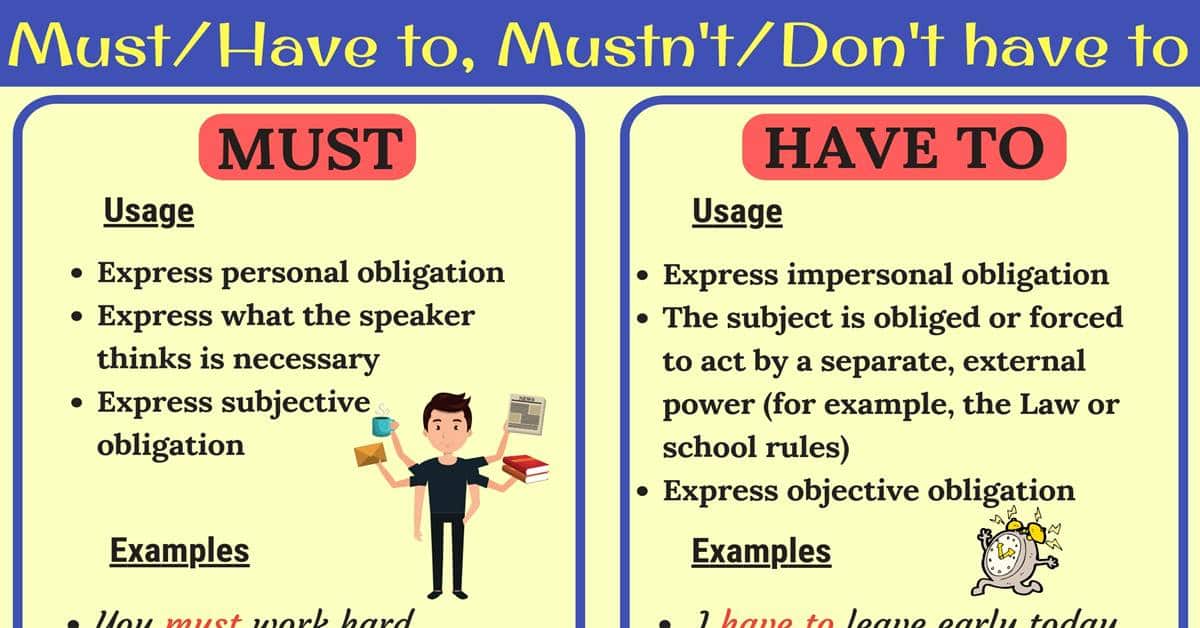HAVE TO/ MUST
• Must expresses the speaker's feelings, whereas have to expresses, above all, an impersonal idea:
You must come. You are obliged to come (I require that you come)
You have to come. You are obliged to come. (There's a rule requiring you to come)
Must I wear this tie? Am I obliged to wear this tie? (What do you think?)
Do I have to wear this tie? Am I obliged to wear this tie? (Is there a rule about ties?)
• Have to mainly expresses general obligations, while must is used for specific obligations:
I have to brush my teeth twice a day.
I must tell you something.
Important: To express obligation, duty or necessity in the future or the past, must and need are not used. They are replaced by have to:
We must (need to) buy another ticket.
We had to buy another ticket yesterday.
We'll have to buy another ticket later.
However, in their negative forms, mustn't and don't have to have completely different meanings:
• Mustn't expresses prohibition
You mustn't drive. You are prohibited to drive. You are not allowed to drive.
• Don't have to expresses the absence of obligation or necessity:
You don't have to drive. You are not obliged to drive (but you can if you want to).


• Must expresses the speaker's feelings, whereas have to expresses, above all, an impersonal idea:
You must come. You are obliged to come (I require that you come)
You have to come. You are obliged to come. (There's a rule requiring you to come)
Must I wear this tie? Am I obliged to wear this tie? (What do you think?)
Do I have to wear this tie? Am I obliged to wear this tie? (Is there a rule about ties?)
I have to brush my teeth twice a day.
I must tell you something.
Important: To express obligation, duty or necessity in the future or the past, must and need are not used. They are replaced by have to:
We must (need to) buy another ticket.
We had to buy another ticket yesterday.
We'll have to buy another ticket later.
However, in their negative forms, mustn't and don't have to have completely different meanings:
• Mustn't expresses prohibition
You mustn't drive. You are prohibited to drive. You are not allowed to drive.
• Don't have to expresses the absence of obligation or necessity:
You don't have to drive. You are not obliged to drive (but you can if you want to).


Comentarios
Publicar un comentario